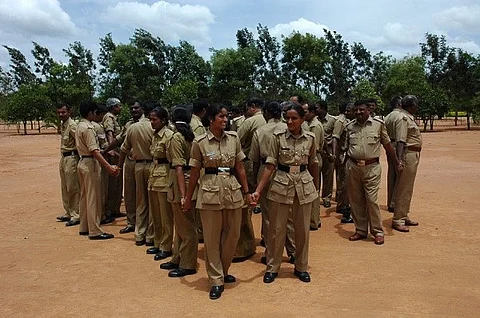

Amnesty International India, a human rights NGO, has urged Karnataka state police to drop a sedition case registered against the organizers of a protest, seeking better wages and living and working conditions for police personnel.
On June 2, the police arrested Shashidhar Venugopal, the president of the Akhila Karnataka Police Mahasangha (All-Karnataka Police Association), from his home in Bengaluru, and Basavaraj Koravankar of the Working Police Families Welfare Committee in Dharwad.
They have also been accused of other offences under the Indian Penal Code. The two former policemen have spearheaded calls for a statewide peaceful police strike on June 4, when over 50,000 personnel were planning to go on mass leave.
Karnataka’s Director-General and Inspector-General of Police Om Prakash said that outside elements were instigating the police personnel.
He said that indiscipline in the police force would not be tolerated and grievances would be resolved amicably when there is no pressure.
Addressing the media on June 2, he said that all those who had applied for mass leave have withdrawn their request after officials visited the families of a few constables.
“It is absurd that demands for better wages and working conditions are being dealt with as crimes against the nation,” said Abhirr VP, campaigner at Amnesty International India.
“Low-ranking police officials often have to endure dismal living and working conditions, and work long hours without any leave. These increase the likelihood of abusive behavior. Karnataka authorities must take concrete steps to improve the working conditions of police officials, and not try to silence protestors by using draconian laws,” he said.
A 2009 report on working of the police in Indian states by Human Rights Watch found that most low-ranking officers were required to be on-call 24 hours a day, every day. Instead of shifts, many worked long hours, sometimes living in tents or filthy barracks. Many were also separated from their families for long periods of time.